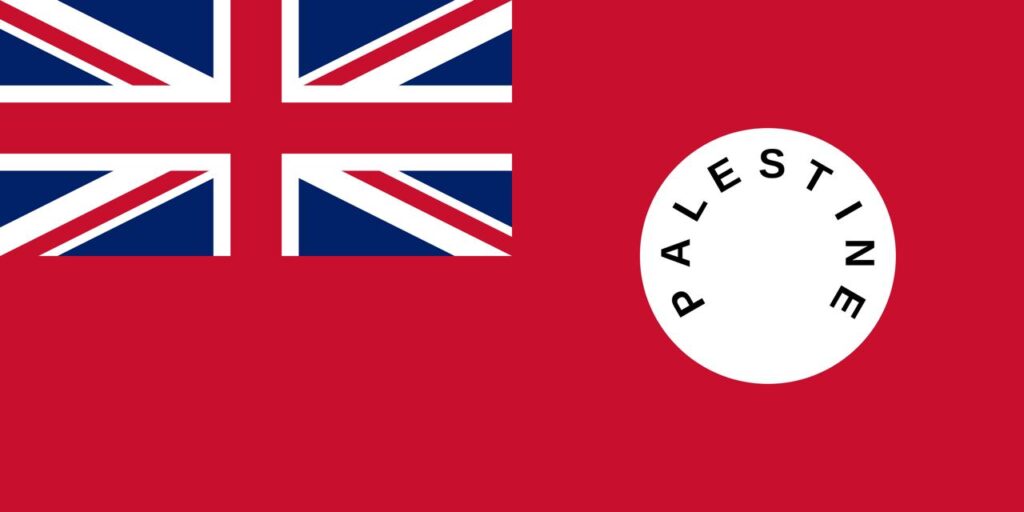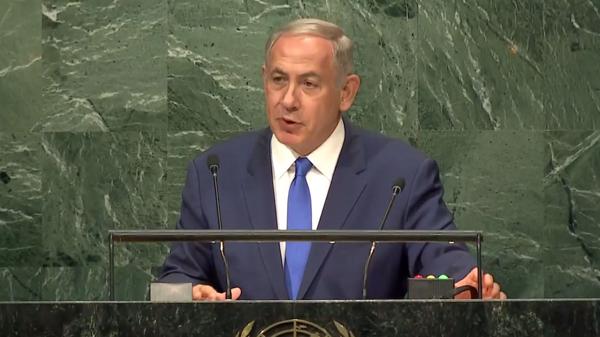A. Al-Mulhim
Jpost.com
20/03/2011

He estado en contacto con los palestinos desde que estaba en primer grado en Al-Hassa, Arabia Saudita. Ellos fueron los más dedicados e inteligentes entre todos mis instructores, desde la primaria hasta la secundaria. Cuando asistía al SUNY Maritime College (1975-1979) con sede en Nueva York, leí muchos libros sobre los palestinos, los árabes y los israelíes. He leído todos los artículos sobre las muchas oportunidades para resolver su problema, que los palestinos perdieron, en especial el acuerdo de Camp David entre Egipto e Israel. He visto y leído sobre las vidas de palestinos en EE.UU. y otros lugares. Son muy exitosos en todos los campos.
Al mismo tiempo, vi a los países árabes en la parte inferior de la lista en educación y desarrollo. Y hago la pregunta: ¿Qué habría pasado si los palestinos y los árabes hubieran aceptado a Israel el 14 de mayo de 1948 y reconocido su derecho a existir? ¿El mundo árabe habría sido más estable, más democrático y más avanzado? Si Israel hubiera sido reconocido en 1948, los palestinos habrían sido capaces de liberarse de las promesas huecas de los dictadores árabes que les decían que los refugiados podrían volver a sus hogares, que todas las tierras árabes serían liberadas y que Israel sería enviado al fondo del mar. Algunos líderes árabes solían utilizar a los palestinos para reprimir a su propio pueblo y mantenerse en el poder.
Desde 1948, si un político árabe quería ser un héroe, tenía una manera fácil de hacerlo. Sólo necesitaba gritar, tan fuerte como pudiera, sobre su intención de destruir a Israel, sin movilizar un solo soldado (hablar es barato).
Si Israel hubiera sido reconocido en 1948, no habría habido necesidad de un golpe de Estado en Egipto contra el rey Faruk en 1952 y no habría habido ningún ataque contra Egipto en 1956 por parte del Reino Unido, Francia e Israel. Tampoco habría habido una guerra en junio de 1967, y el tamaño de Israel no habría aumentado y nosotros, los árabes, no tendríamos necesidad de una resolución de la ONU para pedir que Israel vuelva a las fronteras anteriores a 1967. Y ninguna guerra de desgaste entre Egipto e Israel, que causó más víctimas en el lado egipcio que en el lado israelí.
Después de la guerra de 1967, Israel se convirtió en un aliado estratégico de EE.UU. Antes de eso, EE.UU. no estaba tan cercano a Israel como algunos en el mundo árabe creen. Los israelíes pelearon esa guerra usando, principalmente, armas francesas y británicas, mientras que la administración de EE.UU. se negó a suministrarle a Israel aviones más modernos y sistemas de armamento, como el F-4 Phantom.
La miseria palestina también se utilizó para derrocar a otra monarquía estable, esta vez en Irak, y reemplazarla por una dictadura sangrienta. Iraq es rico en minerales, reservas de agua, tierras fértiles y sitios arqueológicos. El ejército, dirigido por Abdul Karim Qassim, mató al rey Faisal II y a su familia. El derramamiento de sangre en Irak continuó, y este país árabe ha visto revoluciones más violentas.
Uno de ellas se llevó a cabo en la década de 1960 por una brigada enviada para ayudar a liberar a Palestina. En lugar de eso, volvió y se apoderó de Bagdad.
Años después, Saddam Hussein dijo que liberaría a Jerusalem a través de Kuwait; usó la miseria palestina como excusa para invadir ese país.
Si Israel hubiera sido reconocido en 1948, el golpe de 1968 no habría ocurrido en otra monarquía estable y rica – Libia, donde el rey Idris fue derrocado y Muammar Gaddafi tomó el poder.
Hubo otros golpes militares en el mundo árabe, como en Siria, Yemen y Sudán. Y cada uno de ellos usó a Palestina como la razón para tales actos.
El régimen egipcio de Gamal Abdel Nasser solía llamar atrasados a los estados árabes del Golfo, y trató de derrocar a sus gobiernos usando sus medios de comunicación y sus fuerzas militares. Incluso atacó la frontera sur de Arabia Saudita usando sus bases aéreas en Yemen.
Incluso un país no árabe (Irán) usó a Palestina para desviar a su pueblo del malestar interno. Recuerdo al Ayatolláh Ruhollah Khomeini declarando que liberaría a Jerusalem a través de Bagdad, y al presidente Mahmoud Ahmadinejad efectuando declaraciones belicosas contra Israel, aunque ni siquiera un petardo fue lanzado desde Irán hacia Israel.
Ahora, los palestinos están solos, cada país árabe está ocupado con su propia crisis – desde Egipto, Túnez, Libia, Sudán, Yemen, Siria, Jordania, Somalia, Argelia, Líbano a los estados del Golfo.
El escritor es un comodoro (r) en la Marina Real de Arabia Saudita. Tiene su sede en Alkhobar, Arabia Saudita, y puede ser contactado en almulhimnavy@hotmail.com Este artículo se publicó por primera vez en arabnews.com se reproduce con el permiso del autor.
Traducido para porisrael.org por José Blumenfeld
Difusion: www.porisrael.org
What if the Arabs had recognized Israel in 1948?
A. Al-Mulhim
Jpost.com
03/20/2011

I have been exposed to Palestinians since I was in first grade in Al- Hassa, Saudi Arabia. They were the most dedicated and intelligent among all my instructors, from elementary to high school. When I was attending New York-based SUNY Maritime college (1975-1979), I read a lot of books about Palestinians, Arabs and the Israelis. I have read every article about the many chances the Palestinians missed to solve their problem, especially the Camp David agreement between Egypt and Israel. I have seen and read about the lives of Palestinians in the US and other places. They are very successful in every field.
At the same time, I saw the Arab countries at the bottom of the list in education and development. And I ask the question: What if the Palestinians and Arabs accepted Israel on May 14, 1948 and recognized its right to exist? Would the Arab world have been more stable, more democratic and more advanced? If Israel were recognized in 1948, the Palestinians would have been able to free themselves from the hollow promises of Arab dictators who kept telling them the refugees would be back in their homes, all Arab lands would be liberated and Israel would be sent to the bottom of the sea. Some Arab leaders used the Palestinians to suppress their own people and stay in power.
Since 1948, if an Arab politician wanted to be a hero, he had an easy way of doing it. He just needed to shout as loud as he could about his intention to destroy Israel, without mobilizing a single soldier (talk is cheap).
If Israel were recognized in 1948, there would have been no need for a coup in Egypt against King Farouk in 1952 and there would have been no attack on Egypt in 1956 by the UK, France and Israel. Also, there would have been no war in June 1967, and the size of Israel would not have increased and we Arabs would not have the need for a UN resolution to beg Israel to go back to the pre-1967 borders. And no war of attrition between Egypt and Israel that caused more casualties on the Egyptian side than the Israeli side.
After the 1967 war, Israel became a strategic ally of the US. Before then, the US was not as close to Israel as some in the Arab world believe. The Israelis fought that war using mainly French and British weapons while the US administration refused to supply Israel with more modern aircraft and weapons systems, such as the F-4 Phantom.
PALESTINIAN MISERY was also used to topple another stable monarchy, this time in Iraq, and replace it with a bloody dictatorship. Iraq is rich in minerals, water reserves, fertile land and archeological sites. The military, led by Abdul Karim Qassim, killed King Faisal II and his family. Bloodshed in Iraq continued, and this Arab country has seen more violent revolutions.
One of them was carried out in the 1960s by a brigade sent to help liberate Palestine. Instead it went back and took over Baghdad.
Years later, Saddam Hussein said he would liberate Jerusalem via Kuwait; he used Palestinian misery as an excuse to invade that country.
If Israel had been recognized in 1948, the 1968 coup would not have taken place in another stable and rich monarchy – Libya, where King Idris was toppled and Muammar Gaddafi took over.
There were other military coups in the Arab world, such as in Syria, Yemen and Sudan. And each one of them used Palestine as the reason for such acts.
The Egyptian regime of Gamal Abdel Nasser used to call the Arab Gulf states backward, and he tried to topple their governments using his media and military forces. He even attacked the southern borders of Saudi Arabia using his air bases in Yemen.
Even a non-Arab country (Iran) used Palestine to divert its people from internal unrest. I remember Ayatollah Ruhollah Khomeini declaring that he would liberate Jerusalem via Baghdad, and President Mahmoud Ahmadinejad making bellicose statements about Israel, though not even a firecracker was fired from Iran toward Israel.
NOW, THE Palestinians are on their own; each Arab country is busy with its own crisis – from Egypt, Tunisia, Libya, Sudan, Yemen, Syria, Jordan, Somalia, Algeria, Lebanon and the Gulf states.
For now, the Arab countries have put the Palestinian-Israeli conflict on hold.
The writer is a commodore (ret.) in the Royal Saudi Navy. He is based in Alkhobar, Saudi Arabia, and can be contacted at almulhimnavy@hotmail.com. This article was first published on arabnews.com and is reprinted with the writer’s permission.




















Debes estar conectado para publicar un comentario. Oprime aqui para conectarte.
¿Aún no te has registrado? Regístrate ahora para poder comentar.